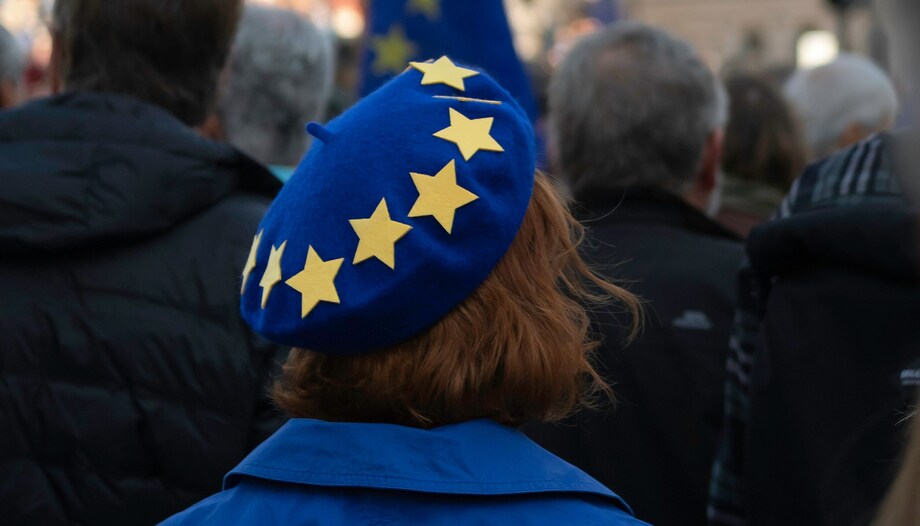It was a spectacular news program directed by Carlos Franganillo on the eve of the European elections. From Normandy to Ukraine, from Brussels to Washington and from Spain to Lesbos and Athens to talk about the past and present of Europe. But there was a big forgotten one: Rome.
It would have been the same if any other network had done it, the Christian roots of the old continent are rarely alluded to. Like a teenager who is embarrassed by his parents in public, the Europa The 21st century woman disowns those who gave her life, those who fed, clothed and cared for her, looking for a new identity that makes her feel autonomous, independent and "older".
The truth is that, no matter how great we may be, in the world geopolitical panorama our status is increasingly insignificant compared to the great powers that are currently the ones cutting the codfish.
In its role as mother, the Catholic Church has warned time and again about the bad company of this spoiled child who, raised in cotton wool thanks to the patrimony worked by her parents, continues to believe she is superior to others.
The Bishop of Rome has come to call these friendships "dangerous ideological, cultural and spiritual colonizations" and accuses them of "looking above all to the present, denying the past and not looking to the future".
In the face of today's reality, the example of the founding fathers of the European UnionThey were not so much concerned about themselves, their present, their welfare, their political influence, but about the future of all after the horrors of the Second World War. And they did so without denying the past, taking Christian values as the basis of their project.
There were four architects of the Treaty of Rome, which created the European Economic Community, the seed of today's EU: the Frenchman of Luxembourgish origin Robert SchumanGermany's Konrad Adenauer, Italy's Alcide De Gasperi and the French Jean Monnet.
Not by chance, the first three relied on deep Christian convictions to develop their political activity, "one of the highest forms of charity" as the popes of the twentieth century would define it.
Two of them are even considered "servants of God" and are in the process of beatification, namely Schuman and De Gasperi. Their political charity, their desire to love one's neighbor as oneself, each one from their responsibility as statesmen, did not hide proselytizing purposes, but a deep democratic conviction and a scrupulous respect for the separation of Church and State.
That initial impulse, based on the Gospel values of peace, solidarity and the search for the common good, gradually lost steam as we forgot about spiritual and cultural ties and left only economic ties as the only point of union.
And what would you say, from your experience, is the main reason for the breakup of any well-adjusted family? They got it right: the intrusion of money, especially in excess, such as when an unexpected inheritance arrives.
So here we are, in a wealthy and divided Europe (the brexit It is not just an anecdote), polarized in the extremes according to the results of the last elections and with very few things clear about what it wants to be, about what its vocation is beyond that of deifying the ideology of the influencer of the moment.
Europe certainly draws from the sources of Greco-Roman culture, the Renaissance and the French Revolution, but its face would not be what it is without the Judeo-Christian tradition and more specifically Christian humanism.
It was in this sense that the Pope reflected a few days ago during his visit to the Capitol, precisely the place where the Treaty of Rome was signed. There he affirmed that "Roman culture, which undoubtedly experienced many good values, needed on the other hand to rise up, to confront itself with a broader message of fraternity, love, hope and liberation (...) The brilliant witness of the martyrs and the dynamism of charity of the first communities of believers intercepted the need to hear new words, words of eternal life: Olympus was no longer enough, we had to go to Golgotha and before the empty tomb of the Risen One to find the answers to the longing for truth, justice and love". It could not be said better.
In connection with this problem with the teenager Europe, I heard the other day a phrase that comes to the point. It said: "parents who kneel down, children who rise up". It is timely because, in addition to continuing to exercise as a good mother her prophetic and crushing role, the Church - which is made up of the whole community of believers - needs to pray, like St. Monica, for the rebellious child.
Let us hope that post-war adolescent Europe can rectify in time, stand up, rediscover its identity and say, as we have all said remembering our adolescent stubbornness: "It is true that my mother had her faults, but how right she was!
Journalist. Graduate in Communication Sciences and Bachelor in Religious Sciences. He works in the Diocesan Delegation of Media in Malaga. His numerous "threads" on Twitter about faith and daily life have a great popularity.








